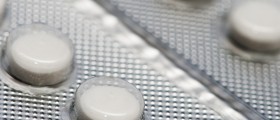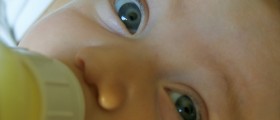Bioidentical Hormones
Bioidentical hormones are extracted from plants and they have identical molecular structure as hormones naturally produced by the body. Thereby, therapy with bioidentical hormones is called natural hormone therapy. Bioidentical hormones are given to women who suffer from symptoms of menopause. That is known as hormone replacement therapy (HRT).
Women go trough many hormonal disturbances during their lives. Hormonal changes occur during puberty, pregnancy and menopause. Due to hormonal imbalance, menopausal women experience many disturbing symptoms. That includes: hot flashes, night sweats, mood swings, weight gain, memory loss and low libido. In hormone replacement therapy hormones like estrogen, progesterone and androgen are given to promote hormonal balance in menopausal women. However, bioidentical hormones are not so safe and include certain side effects.

However, the effects of the menopause often have a negative impact on women’s wellbeing and quality of life, and are frequently underestimated by noth women and their doctors. Furthermore, the low estrogen levels and other biological changes that occur in menopausal women are also associated with an increased risk of:
- cardiovascular disease,
- osteoporosis,
- type 2 diabetes,
- and dementia.
Difference Between Synthetic and Bioidentical Hormones
Bioidentical hormones are nowadays mainly used in hormone replacement therapy while before it were synthetic hormones. Synthetic hormones are made from chemicals. They have molecular structure different from the structure of hormones produced by the body. The body recognizes artificial hormones and has trouble assimilating them effectively thus women experience various adverse effects.
Bioidentical hormones function equally as those in the body. The body cannot distinguish between these hormones thus bioidentical hormones are not rejected by the system. Therefore, they are much effective in hormone replacement therapy but the safety remains an issue.
Side Effects of Bioidentical Hormones
Bioidentical hormones create dependence. When become dependent, the body slows down manufacture of natural hormones. The body cannot tell the difference between bioidentical and biological hormones so the secretion of hormones gets reduced. When used for extended period of time the body increases dependence upon bioidentical hormones.
Bioidentical hormones often induce confusion. This happens because the body cannot adjust levels of these hormones in stressful situations. Mood and hormones are closely related thus women experience confusion when taking bioidentical hormones. This may cause depression.
Physical side effects of bioidentical hormones are also present. Women may gain weight, especially around thighs, buttocks, waist and abdomen. Hair loss is another common side effect of bioidentical hormone replacement therapy. Many women may suffer from facial growth. Fatigue can be present as well. This requires alteration in dosage.
Additionally, bioidentical hormones have severe toxic side effects.
Each bioidentical hormone has its own side effects. Estrogen is associated with increased risk of: heart attack, stroke, dementia, gallbladder problems, hypertension, liver impairment, high blood sugar and breast, ovarian and uterine cancers. Estradiol, type of estrogen can affect breasts, skin, cardiovascular, gastrointestinal and central nervous systems. Due to this, estradiol is given only for short term.
Progesterone adverse effects include: constipation, yeast infection, acne, breast cancer, conjunctivitis, heart attack, stroke, migraine, asthma, depression, and emotional instability.











-Why-Some-Women-Take-This-Type-Of-Progesterone-During-Early-Pregnancy_f_280x120.jpg)





Your thoughts on this
Loading...